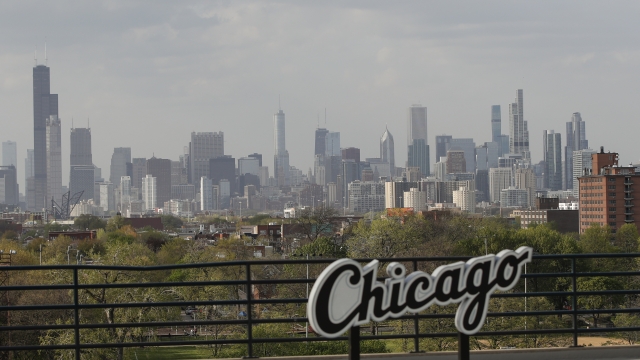A silent hazard is lurking beneath the ground of urban areas. Scientists call it "underground climate change." Train tunnels, basements, parking garages and other underground structures leak so much heat that according to a new study, in some areas beneath downtown Chicago the ground has warmed up by nearly 30 degrees Fahrenheit over the past 70 years.
As the ground heats up, it also slowly shifts, potentially causing cracks in building foundations.
"We're dealing with ground movements of a third of an inch, half an inch that have developed over time," explained Alessandro Rotta Loria, an assistant professor of civil and environmental engineering at Northwestern University who authored the new study.
To find out how hot it gets beneath Chicago's "Loop", Rotta Loria installed more than 150 temperature sensors above and below ground level.
After three years of gathering data and with the help of a computer model, he was able to estimate underground temperature changes from 1951 all the way to 2051.
SEE MORE: Monday was officially the hottest summer day ever
"Over the past 70 years, the ground warmed up and it will continue to do so in the next 30 years, although at a slower rate," he said.
While Rotta Loria urges action to mitigate the costly effects of underground climate change, he also stresses that people's lives are not at stake.
"The good news is that we're not talking about the phenomenon that threatens the life of people. But nonetheless, it can trigger effects that, especially from an economic perspective, can be unwanted. And so we should definitely take action," Rotta Loria said.
One solution for Chicago and other dense and old cities worldwide is retrofitting existing buildings to minimize the amount of heat they leak into the ground.
Another solution is to harvest and reuse some of the wasted heat.
"It's like you have an extra amount of energy that you could absorb, you could harness in cities compared to the rural area. So this is why it is also an opportunity," Rotta Loria said.
Trending stories at Scrippsnews.com




